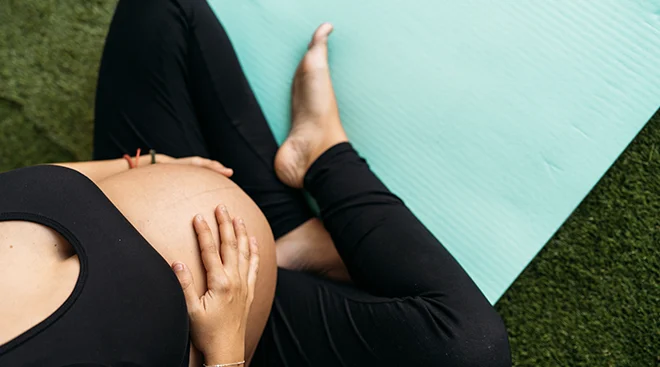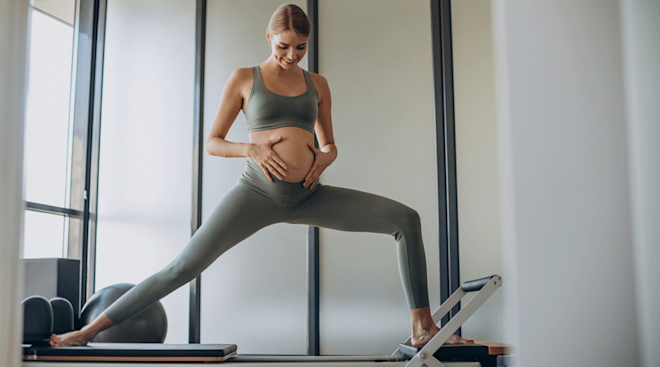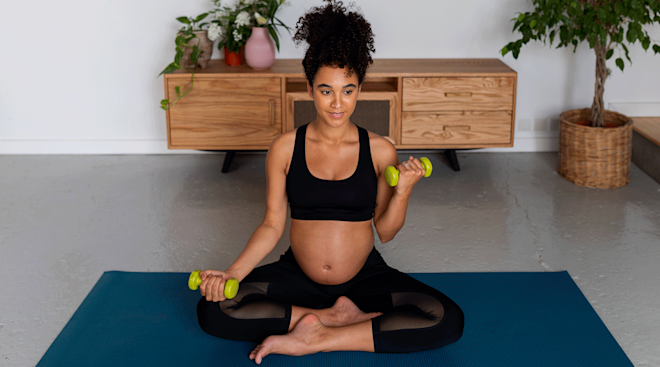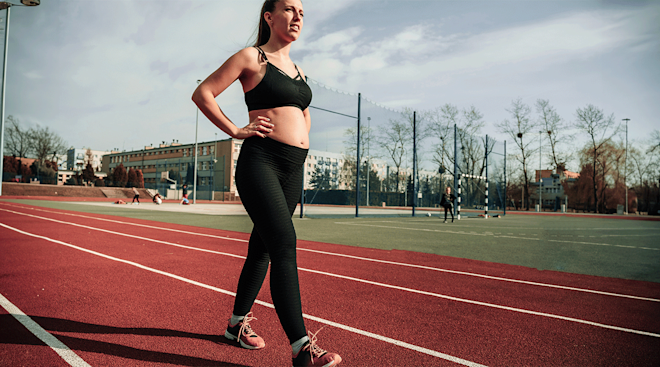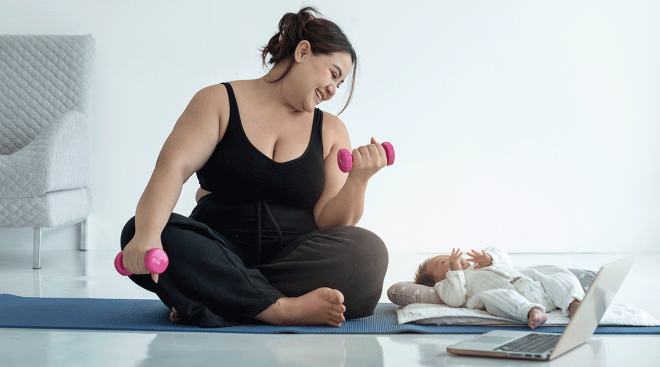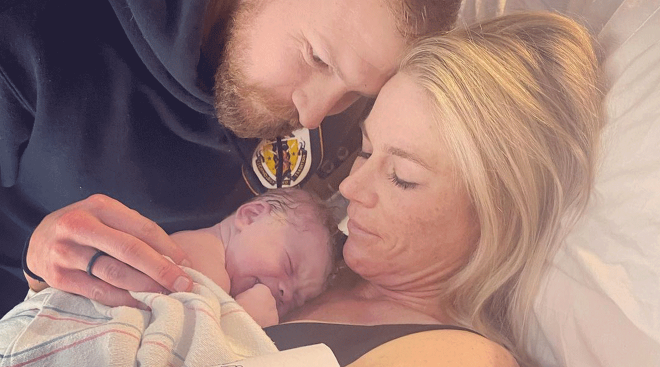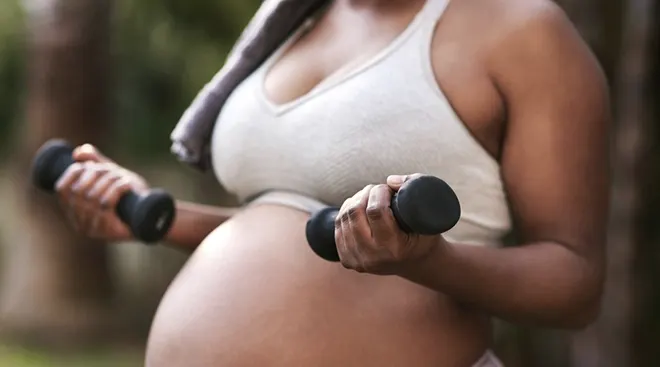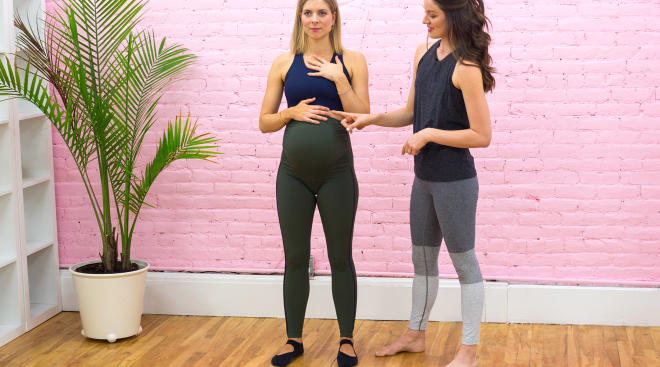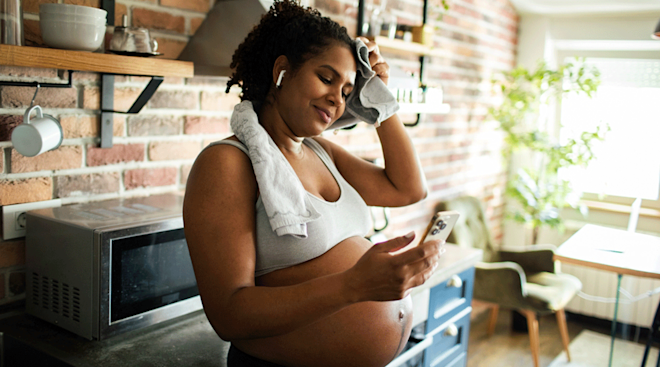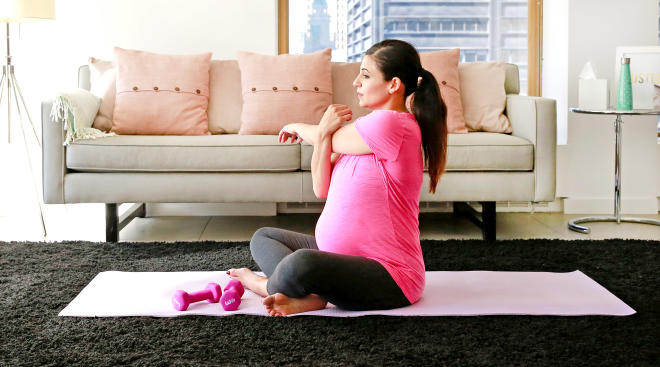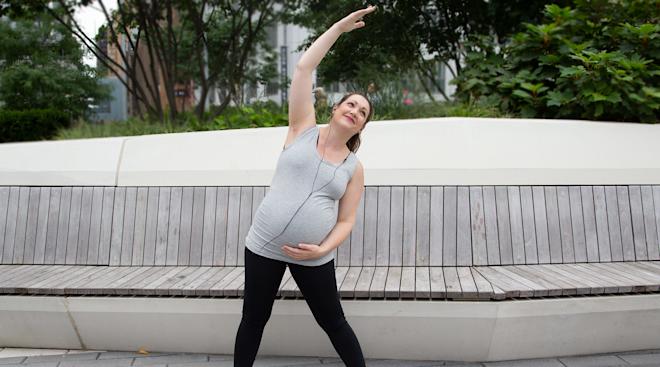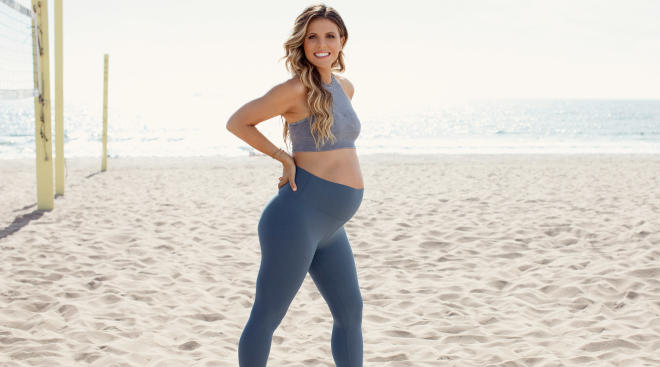9 Things You Can Do While Pregnant to Make Postbirth Recovery Easier
Whether you opt for pain meds or labor au naturel, giving birth is no walk in the park. But there are a few things you can do throughout pregnancy—especially in your second and third trimesters—that can make labor, delivery and postpartum recovery a bit easier on your body. From stocking up on supplies to making small lifestyle tweaks, the homestretch leading up to your due date is the time to be proactive about your personal comfort. After you give birth, it’s natural (and all-too-easy) to put baby’s needs before your own, so follow these tips to put you on a smooth path to parenthood.
Unless you have a specific medical condition, most doctors recommend maintaining your usual fitness routine as long as you can (modifying as needed, of course). In addition to giving you better stamina for delivery, keeping active will make it easier to start back up again once you’re cleared for exercise after birth. This typically occurs within six weeks, but can vary depending on how you deliver and if stitches are needed.
Watch, Hospital Bag Essentials During Covid-19:
While it’s tempting to use pregnancy as an excuse to double down on dessert, excess weight gain can make recovery slower—not to mention harder emotionally—if it takes longer than you anticipated to get back to “normal.” If you were a normal weight prepregnancy (based on a BMI of 18 to 25), doctors recommend gaining 25 to 35 pounds. To stay within that range, focus on eating nutrient-rich foods to nourish you and baby.
Once baby is born, your nighttime sleeping pattern will be interrupted for months (even years!), and while you can’t “stock up” on sleep, now’s the time to practice going to bed earlier. You should also try to nap when you can and adjust your social schedule to include plenty of downtime. If you (like many pregnant women) are having trouble sleeping, try a new position or invest in a pregnancy pillow so you can be as rested as possible when the time comes for labor.
During pregnancy, your body needs more water intake to help baby develop; it’s used to produce extra blood, build new tissue and form amniotic fluid, among other things. It’s also needed to produce milk, so you may find that breastfeeding makes you thirsty. Get in the habit of drinking lots of H2O (at least 10 cups a day) by keeping a glass or bottle next to your bed, desk and/or favorite lounging spot. And if you need another incentive: Staying hydrated can also help ease postbirth constipation.
After birth, you can expect some leakage from weakened perineal muscles that are strained or cut in delivery. Do Kegel exercises while you’re pregnant to strengthen the muscles, then start up again as soon as you’re comfortable postbirth to get them back into prebaby shape.
Some women develop hemorrhoids during pregnancy and others get them from pushing during childbirth. Add to that the itching and burning as stitches or tears start to heal, and you can be quite uncomfortable. Stock up on things like witch hazel pads and perineal spray, which can soothe and numb the area, along with sanitary pads and disposable underwear, as bleeding is common for up to six weeks after delivery.
Your belly isn’t the only area growing these days—it’s common to go up a bra cup size or two as well. Rather than buying your favorite T-shirt bra in a bigger size, invest in comfortable maternity and nursing bras, which are designed to offer more support and easy to adjust for breastfeeding. Nursing pads also come in handy to trap the leakage that happens as your breasts become engorged with milk (some women experience this as early as the third trimester), while nipple creams and balms help smooth stretched-out skin and heal chapped nipples that can occur in the first few weeks of breastfeeding.
Many pregnant women go into overdrive getting the nursery ready, buying diaper supplies and sterilizing bottles—but remember to have comforts on hand for yourself too. Shop for nursing tops that’ll make breastfeeding easier, and stretchy pants to wear around the house as you ease out of maternity clothes. Make sure you also have a good spot to sit while you rock baby and fire up your Kindle or Netflix queue with entertainment for late-night feeds or bleary days.
To avoid straining yourself while pregnant, take that seat when someone offers it and hand off the heavy lifting to your partner. It’s also good to get into the practice of saying yes for after birth, when you’ll likely have friends and relatives offering to bring you food or watch baby while you take a shower. But remember that it’s also okay to say no—like when you’re not up for entertaining your mother-in-law because you really just want to take a nap. Being pregnant is a round-the-clock job, so you deserve to call the shots.
Please note: The Bump and the materials and information it contains are not intended to, and do not constitute, medical or other health advice or diagnosis and should not be used as such. You should always consult with a qualified physician or health professional about your specific circumstances.
Plus, more from The Bump:
Navigate forward to interact with the calendar and select a date. Press the question mark key to get the keyboard shortcuts for changing dates.
































